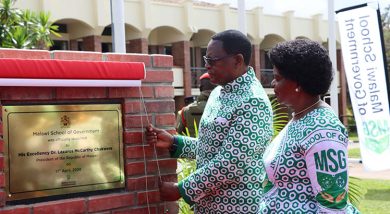Too many by-elections open debate on voting system
Unprecedented vacancies in parliamentary constituencies and wards owing to nullification of election results and deaths due to Covid-19 pandemic have led to calls for the country to embrace proportional representations (PR) electoral system to save resources.
Such unforeseen circumstances will likely exert pressure on Malawi Electoral Commission (MEC) to fulfil its constitutional mandate
as it relies on the already financially burdened Treasury to fund it.
In PR system, such as the one in use in South Africa, people vote for parties, which share seats in Parliament proportionally—depending on the number of parliamentary election votes a party amasses.
Commenting on the debate, Centre for Multiparty Democracy (CMD) executive director Kizito Tenthani, in a response to a questionnaire, said the combined effect of the Covid-19 pandemic and nullification by courts of poll results has caused unprecedented number of by-elections that have to be organised.

“This has triggered a familiar debate regarding changing our electoral system, from the current first-past-the-post to proportional representation, where instead of voting for individuals, one votes for a party,” he said.
Tenthani argued that if one only focuses on the cost of holding by-elections, then obviously, the PR system has an edge over our current system.
“But, in my view, the debate has to go beyond the cost of by-elections, because both systems have advantages and disadvantages,” he said.
Tenthani, however, said if the PR system is harnessed properly, it would promote women and youth representation, better than the first-past-the-post system.
“As such, I would think that as a country, we have to look at different parameters to inform our choice, over and above the question of cost of by-elections,” he said.
Tenthani added: “My major worry, however, would be the level of internal democracy within our political parties. Looking at the way patronage thrives in our political parties, who will make it on to the party list, should we go for the PR?”
However, some legal experts have also punched holes in the PR system, warning that it also has disadvantages, such as not being democratic and prone to corruption.
A professor of law at Chancellor College, Garton Kamchedzera said, in a response to a questionnaire, philosophies and realities on Malawi and South Africa systems are different.
He said South Africa regards the political party as the vehicle for representative democracy in Parliament while, in Malawi, the choice is for both parties and individuals “because participation in political activities should not just be through political parties”.
“Our law allows an individual to stand as an independent. Many win elections in such capacity. Further, to confine parliamentary representation to be through political parties only may, in most cases, strengthen regionalism, parties tend to work primarily on regional and not national lines; but compete during an election,” explained Kamchedzera.
But he said if Malawi were to opt for the PR system, there would be a need to review both the Constitution and the Presidential and Parliamentary Elections (PPE) Act, and a conviction by both political party Members of Parliament (MPs )and independents that access to a parliamentary seat should only be through political parties and proper democratisation of those parties.
Cape Town-based law professor, Danwood Chirwa warned, in a response to a questionnaire, that Malawi should never adopt the South African system because it is more corrupt than the constituency-based system.
“In Malawi, local people have been able to hold MPs accountable, which the South African system has miserably failed to do,” he said.
Malawi, he said, already has the problem of family-controlled parties, adding that the constituency system helps to curb the hold of families on politics.
Director of media and public affairs at MEC, Sangwani Mwafulirwa, said, in a response to a questionnaire, that the electoral body would go for what Malawians want, in accordance with the electoral law.
“If Malawians think that the current electoral system is not serving their best interests,
they are free to move the process of amending the laws to adopt another system such as proportional representation,” he said.
Asked how much, on average, MEC spends on one by-election, Mwafulirwa said there is no standard figure as there are so many variables from one constituency to another.
Opposition Democratic Progressive Party (DPP) spokesperson Brown Mpinganjira said, in an interview on Wednesday, that although the party has never had a chance to discuss the two systems, he prefers the PR system.
He said there was a need to re-haul electoral system laws in favour of PR which, he said, was long overdue.
Mpinganjira said under the PR system, political parties would be able to deliberately send to Parliament more youths and women representatives.
Malawi Congress Party (MCP) spokesperson Moses Kunkuyu, also speaking in his personal capacity as the party is yet to discuss the matter, said he would support a move to change the Constitution.
“We need a Constitution which allows expenditure control on elections. Replacing people through by-elections is too costly for a small economy like ours,” he said.
Kunkuyu said the Covid-19 pandemic would soon prove that the country has a “very wasteful” Constitution.
He added: “In serious engagement, MCP must be convinced that this is the most appropriate option we have. It also makes parties stronger and respectable.”
But Kunkuyu warned that there could be resistance from civil societies promoting human rights.
United Democratic Front (UDF) secretary general (SG) Kandi Padambo, in a response to a questionnaire, said the PR system in its various forms, is practised in many countries in Africa and beyond.
Currently, MEC’s task is to fill vacancies in Nsanje Central, Nsanje North, Zomba Changalume, Lilongwe Msinja South and Karonga North West; Liviridzi Ward in Balaka and Chitakale Ward in Mulanje South.





